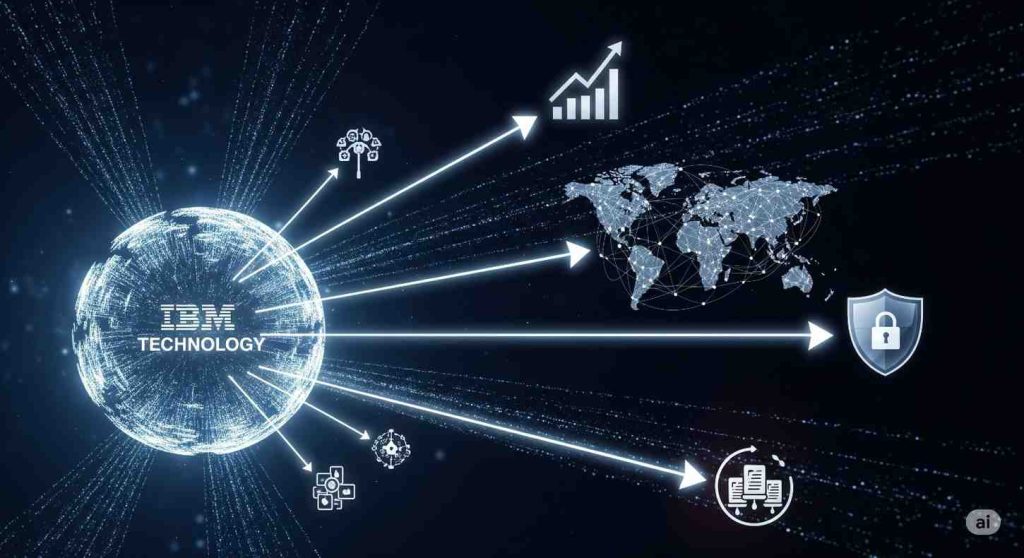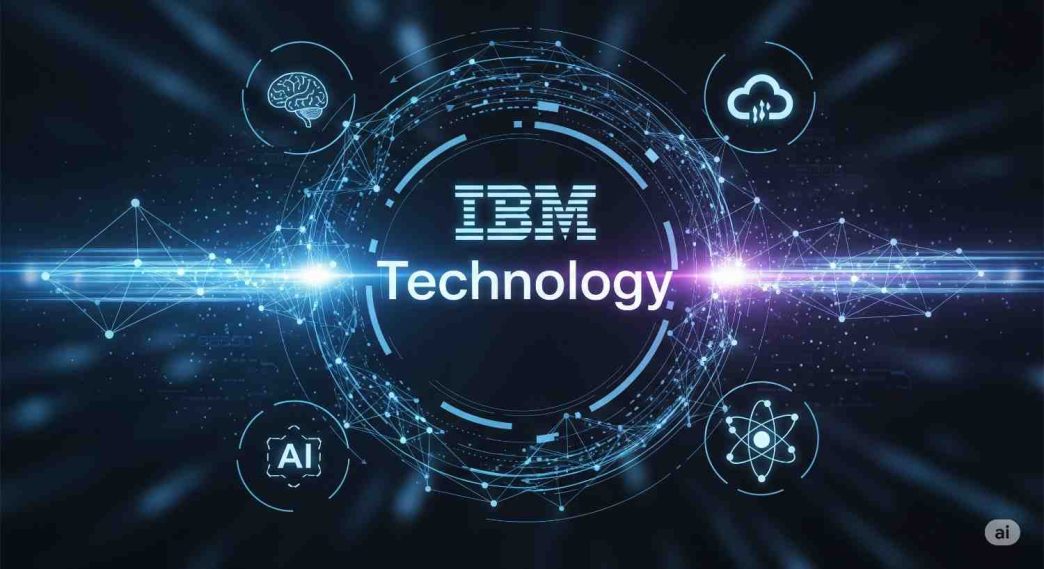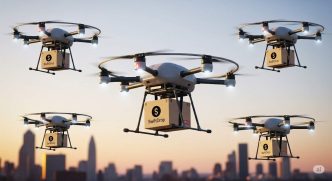Discover what IBM Technology is, its core innovations, and why it plays a critical role in shaping industries in 2025 and beyond.
Introduction
IBM Technology has been at the forefront of innovation for over a century, consistently pushing the boundaries of computing, data analytics, artificial intelligence, and enterprise solutions. In 2025, the company’s technologies are more relevant than ever, driving digital transformation across industries like healthcare, finance, manufacturing, and government services.
From IBM Cloud to IBM Watson AI and Quantum Computing, IBM Technology is creating smarter, more efficient, and sustainable solutions for global challenges. This article will explore what IBM Technology encompasses, its core components, and why it’s essential for the future.
1. Understanding IBM Technology
IBM Technology refers to the wide range of hardware, software, cloud platforms, and AI-driven solutions developed and delivered by IBM to help organizations innovate and grow. It covers:
- Cloud Computing – Offering hybrid cloud services through IBM Cloud.
- Artificial Intelligence – Through IBM Watson AI and automation tools.
- Quantum Computing – Cutting-edge research with IBM Quantum.
- Blockchain Solutions – For secure, transparent transactions.
- Cybersecurity – Protecting data with advanced security platforms.
- Data Analytics – Helping businesses make data-driven decisions.
2. Key Pillars of IBM Technology in 2025

2.1 IBM Cloud
IBM Cloud provides hybrid cloud infrastructure that allows businesses to run workloads across public and private environments. This flexibility helps enterprises modernize legacy systems while ensuring security and compliance.
Highlights in 2025:
- Enhanced AI-powered automation for cloud resource management.
- Deeper integration with Red Hat OpenShift for containerized applications.
- Focus on sustainable data centers to reduce environmental impact.
2.2 IBM Watson AI
IBM Watson is a pioneer in enterprise-grade artificial intelligence. In 2025, Watson’s capabilities include natural language processing, predictive analytics, and AI-assisted decision-making.
Applications:
- Healthcare: Assisting doctors with diagnosis and personalized treatment plans.
- Finance: Risk assessment and fraud detection.
- Customer Service: AI-powered chatbots for faster support.
Quantum computing is one of the most exciting frontiers of IBM Technology. In 2025, IBM offers cloud-based access to quantum processors, enabling researchers and businesses to solve problems that classical computers cannot handle efficiently.
Use Cases:
- Advanced cryptography
- Drug discovery
- Climate modeling
2.4 IBM Blockchain
Blockchain technology from IBM is powering secure supply chains, financial transactions, and identity management systems. By 2025, blockchain adoption in global trade and logistics has accelerated.
Benefits:
- Transparency
- Faster transactions
- Reduced fraud
2.5 IBM Security Solutions
With cyber threats growing, IBM Security provides AI-driven protection against ransomware, phishing, and insider threats. In 2025, real-time threat intelligence powered by IBM QRadar and Guardium is a key asset for enterprises.
3. Why IBM Technology Matters in 2025

3.1 Driving Digital Transformation
Organizations are under pressure to modernize, automate, and adapt to remote and hybrid work models. IBM Technology provides the infrastructure and tools needed for this transformation.
3.2 Enabling AI-First Business Strategies
In 2025, AI is no longer a luxury — it’s a competitive necessity. IBM Watson helps businesses integrate AI into their core operations, improving efficiency and customer experiences.
3.3 Solving Complex Global Problems
From climate change to pandemic preparedness, IBM’s quantum and AI technologies are being used in research to model complex systems and develop solutions faster.
3.4 Strengthening Cybersecurity
Data breaches are costly and damaging. IBM’s security solutions ensure that enterprises stay protected in an increasingly connected world.
3.5 Supporting Sustainability Goals
IBM is investing heavily in green technologies, such as energy-efficient data centers and AI tools that help businesses monitor and reduce carbon footprints.
4. Real-World Applications of IBM Technology in 2025
4.1 Healthcare
IBM Watson Health assists in analyzing patient data, improving diagnostics, and personalizing treatment. Hospitals also use IBM Cloud for secure medical record storage.
4.2 Finance
Banks and financial institutions use IBM Blockchain for transparent transactions and IBM AI for fraud detection and automated compliance checks.
4.3 Manufacturing
IoT-enabled IBM solutions monitor factory equipment, predict failures, and improve supply chain efficiency.
4.4 Education
IBM AI-powered platforms provide personalized learning experiences for students and skill training for professionals.
4.5 Government Services
Public agencies use IBM Cloud and AI to deliver faster citizen services, improve public safety, and ensure data security.
5. Future Outlook for IBM Technology

In the coming years, IBM Technology will continue to expand its influence with advancements in:
- Quantum Advantage – Achieving real-world benefits from quantum computing.
- Edge Computing – Bringing processing power closer to data sources.
- AI Ethics – Ensuring responsible and transparent AI adoption.
- Global Sustainability – Reducing carbon emissions through smarter technology.
By 2030, IBM envisions a world where businesses, governments, and communities rely on interconnected AI, cloud, and quantum systems to solve humanity’s biggest challenges.
FAQs – 2025 Technology Trends
1. What are the main uses of this technology in 2025?
It’s used for cloud computing, artificial intelligence, quantum computing, blockchain, and cybersecurity to help organizations innovate and grow.
2. How is it transforming businesses?
It enables companies to modernize IT systems, automate processes, improve decision-making, protect data, and achieve digital transformation.
3. Which industries benefit the most?
Healthcare, finance, manufacturing, education, and government services have seen the most significant improvements from these innovations.
4. Is it useful for small businesses?
Yes, scalable cloud, AI, and security tools can be adapted to fit the size and budget of small enterprises.
5. What does the future look like?
Advancements in quantum computing, AI ethics, edge computing, and sustainability are expected to play a major role in the coming years.
Conclusion
IBM Technology is more than just a collection of products and services — it’s a global force driving innovation, sustainability, and digital transformation. In 2025, its impact can be seen across every major industry, from healthcare to finance and beyond.
As AI, cloud computing, and quantum technology continue to evolve, IBM remains at the forefront, ensuring that organizations are equipped for the challenges and opportunities of the future.
Know more related:
Best VR Gaming Headsets and Games of 2025







